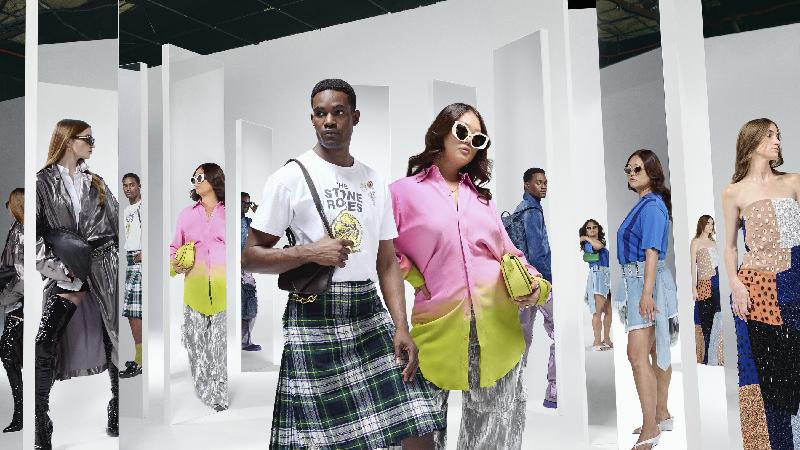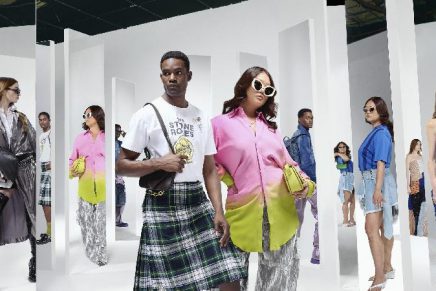
@eBay Pre-Loved Fashion Week, in partnership with the Council of Fashion Designers of America (CFDA) and British Fashion Council (BFC) will include a live, shoppable runway show, “Endless Runway,” followed by daily drops on eBay curating the best pre-loved fashion from top designers.
eBay’s inaugural Pre-Loved Fashion Week, hosted in collaboration with the Council of Fashion Designers of America (CFDA) and the British Fashion Council (BFC), is a fascinating move towards circular fashion. Positioned on the prestigious stages of New York and London Fashion Weeks, the event features a live, shoppable runway dubbed “Endless Runway,” showcasing pre-loved pieces from iconic designers like Khaite, Off-White, and Simone Rocha. While eBay’s initiative taps into growing demand for sustainable fashion, this bold effort raises an essential question: Is this a sustainable shift, or merely a marketing spectacle to catch the zeitgeist?
The Growing Appetite for Circular Fashion
There’s no doubt that circular fashion is no longer a niche interest. Younger generations, led by Gen Z and Millennials, are increasingly drawn to secondhand shopping. In fact, the pre-owned luxury market saw nearly $50 billion in sales in 2023, a number that continues to climb. The shift toward more sustainable consumption has been fueled by heightened environmental awareness and financial accessibility. eBay has been at the forefront of this change, with 40% of its merchandise volume now stemming from pre-loved items, making it a significant player in this movement.
Pre-Loved Fashion Week is clearly eBay’s way of staking its claim as the go-to platform for sustainable luxury shopping. By partnering with such heavyweight institutions as the CFDA and BFC, eBay is signaling that circular fashion is not just a fleeting trend but could be the new normal. The live runway format makes it even more enticing, connecting the past with the present through pre-loved collections styled by fashion creative Wisdom Kaye.
A Real Path to Change or Just Good PR?
Yet, despite the fanfare, it’s essential to critically assess how effective this initiative will be in the long term. Pre-Loved Fashion Week makes the exclusive world of designer fashion accessible, offering shoppable items via eBay Live and daily drops during New York Fashion Week. This move is certainly democratizing fashion, but is it making enough of a dent in the overproduction problem that fast fashion has exacerbated?
Circular fashion should ideally promote not just the resale of existing items but a rethinking of how we produce and consume clothing in general. While eBay’s initiative highlights the value of secondhand shopping, it does little to address the systemic issues that keep fashion’s environmental footprint enormous. The runway shows celebrate archival pieces, but the fashion industry remains addicted to novelty and mass production. Even if we buy a pre-loved designer coat today, does it meaningfully reduce the environmental damage if we’re still chasing trends tomorrow?
Fashion or Environmental Theater?
This initiative isn’t without its skeptics. Some might argue that Pre-Loved Fashion Week risks becoming a feel-good exercise for those already inclined toward luxury goods, rather than a true turning point for the broader industry. The focus on designer fashion, though glamorous, might exclude the lower-priced pre-loved items that make circular fashion accessible to the masses. After all, not every shopper can afford a secondhand Off-White jacket, even at a discounted rate.
Moreover, there’s a legitimate concern that reselling designer goods could become more of a status symbol rather than a genuine commitment to sustainable living. The real change should ideally happen on a deeper level, involving transparency in supply chains, ethical production methods, and longer-lasting designs from the outset.
The Long-Term Outlook
While Pre-Loved Fashion Week is a great step toward normalizing secondhand shopping, it’s uncertain how much this initiative will impact the average consumer’s habits or the fashion industry’s entrenched practices. eBay’s move helps bolster circular fashion’s image, but it’s up to the industry as a whole to embrace more comprehensive solutions.
Ultimately, the success of this initiative will depend on whether it inspires systemic change in fashion production and consumption patterns or simply remains a high-profile nod to sustainability. eBay’s Pre-Loved Fashion Week is certainly an exciting development, but only time will tell whether it’s a game-changing moment or just another well-crafted marketing campaign.




